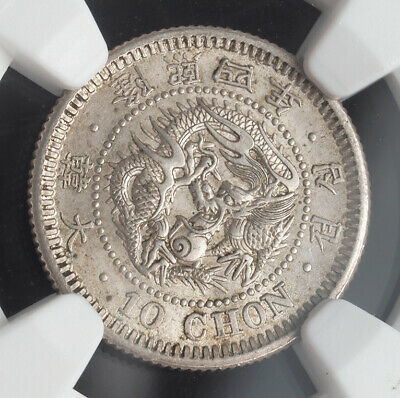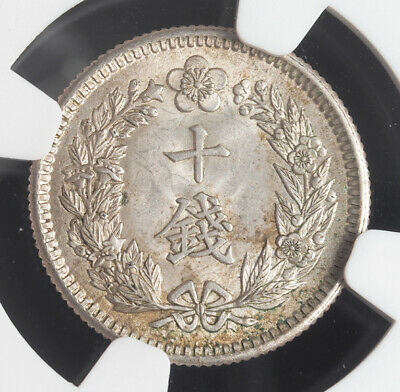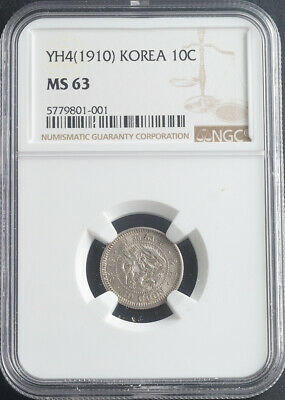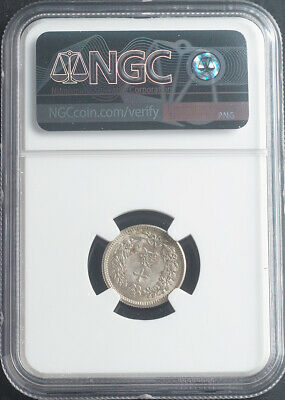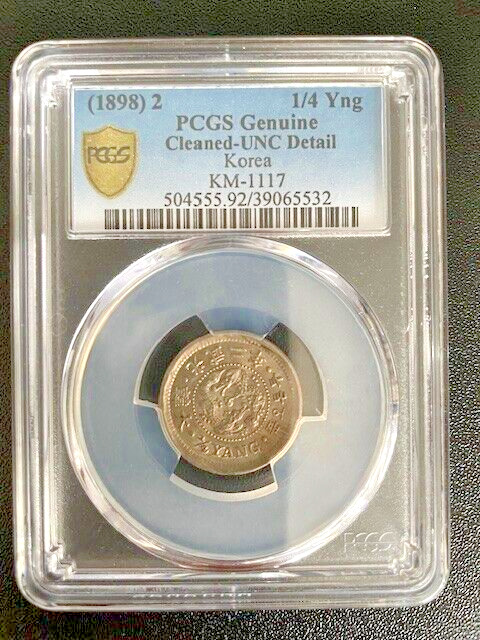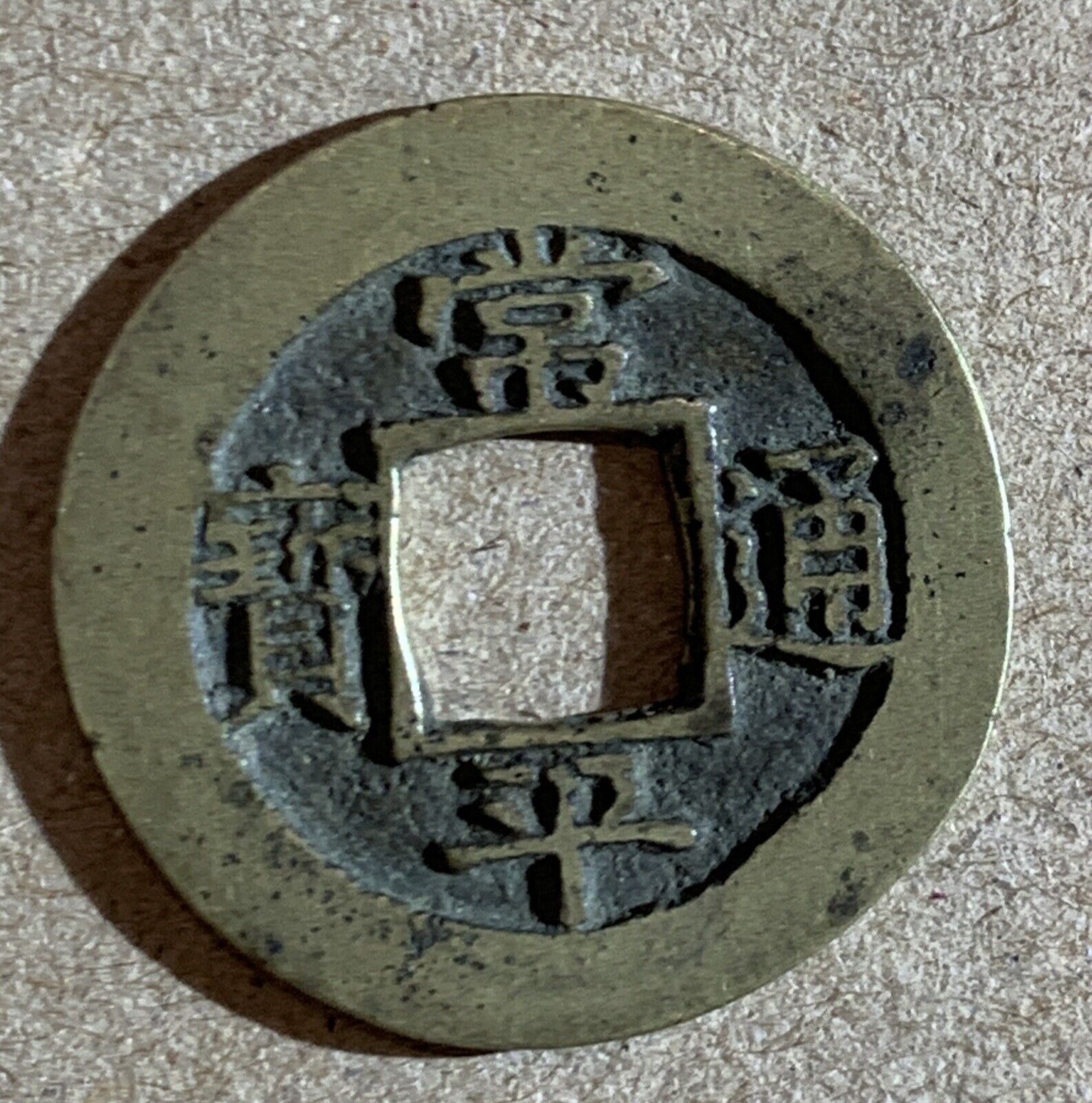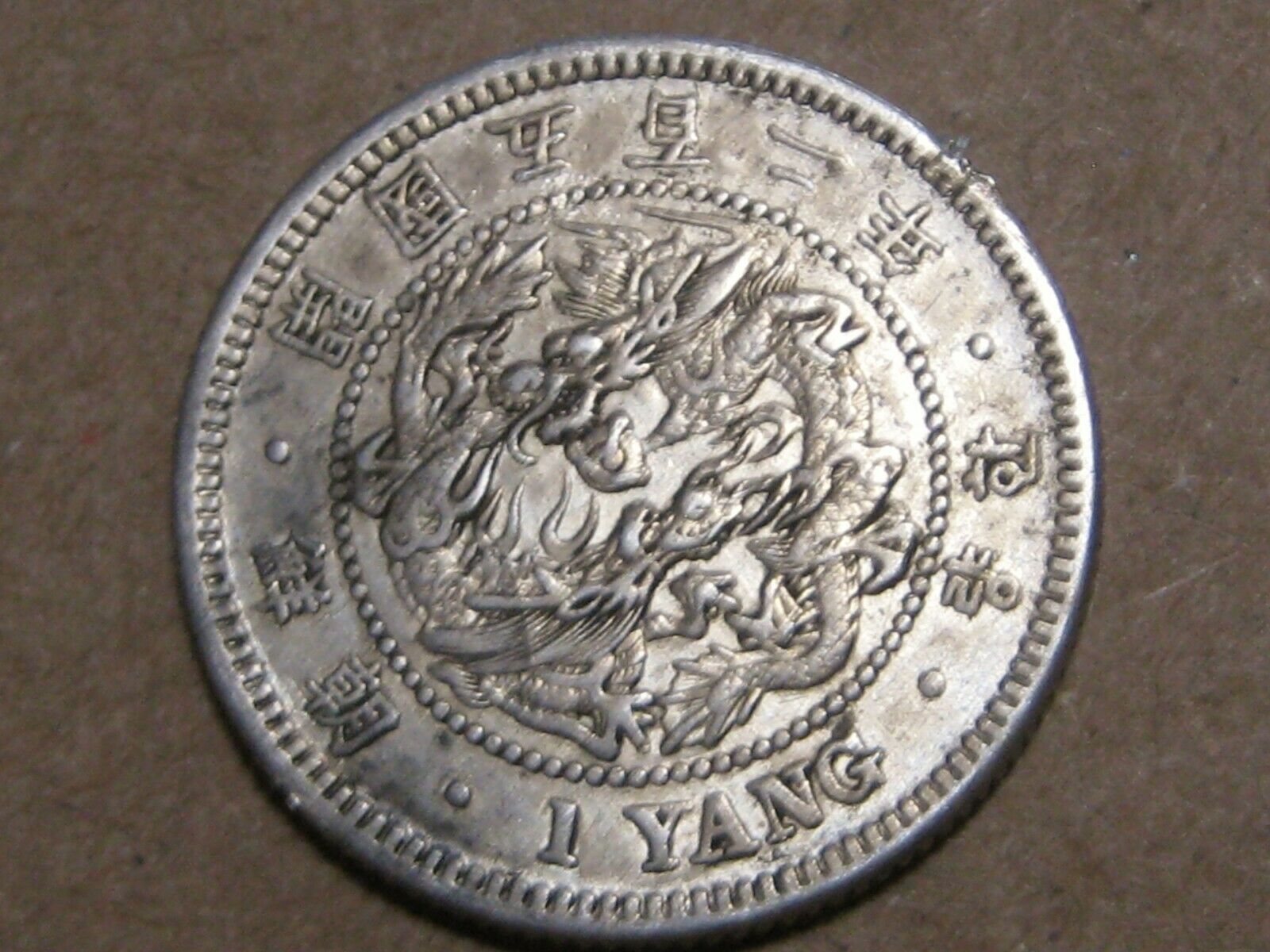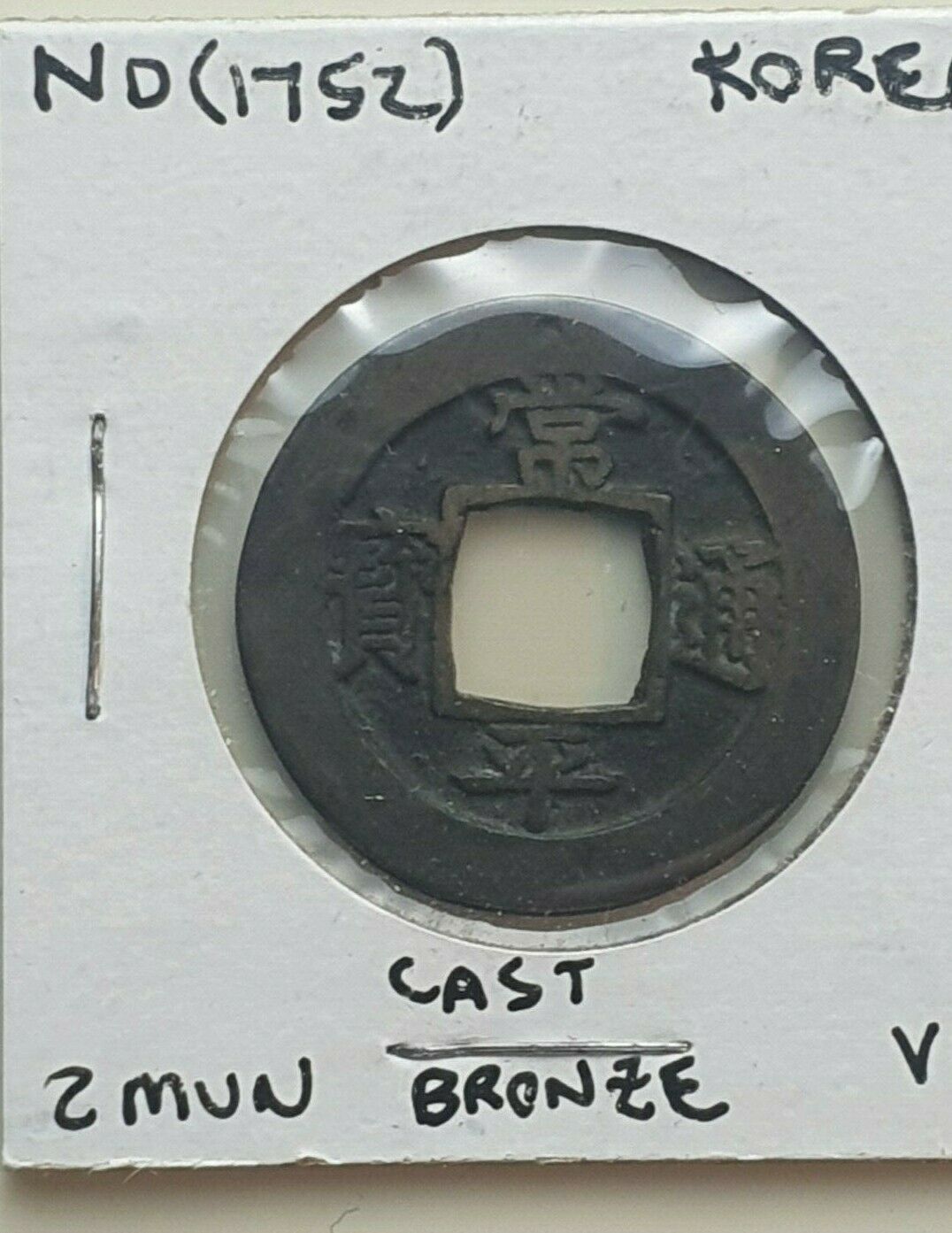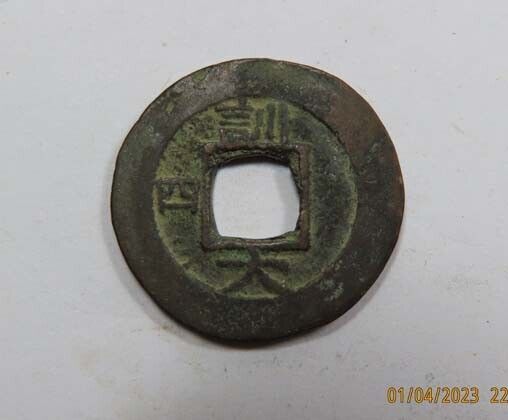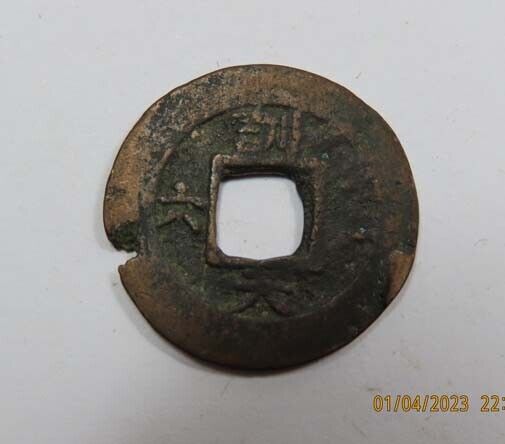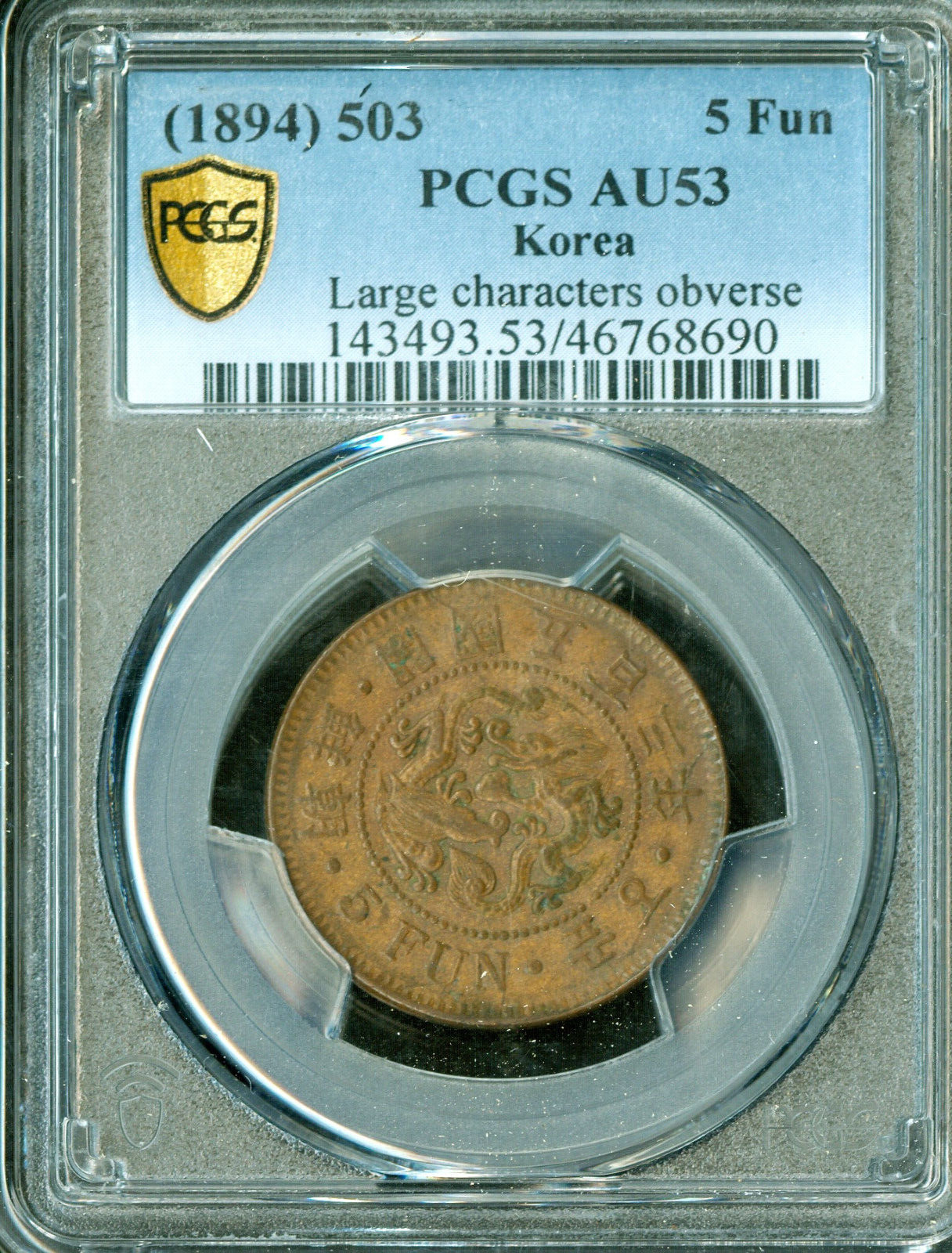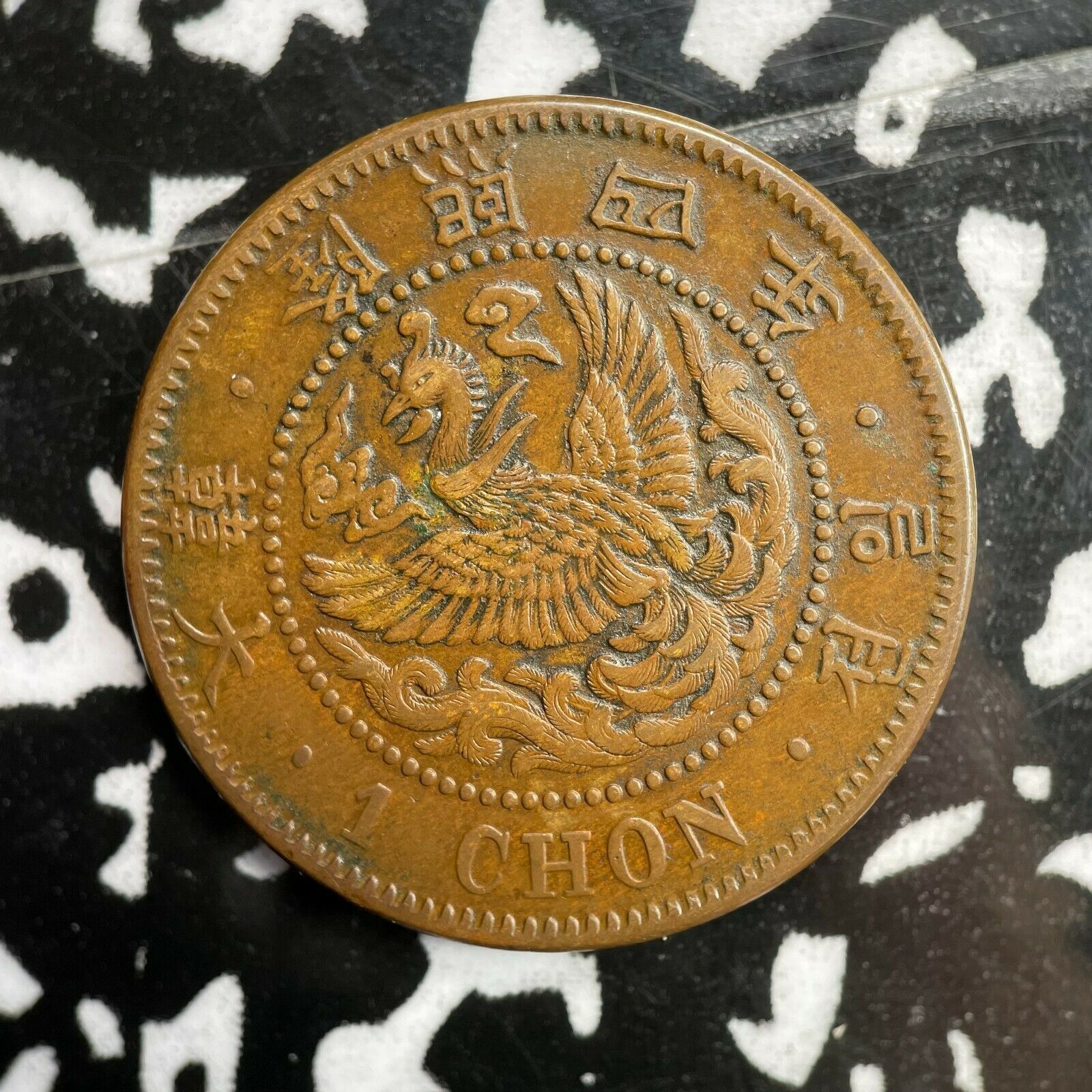-40%
1910, Korea (Empire), Sunjong (Yunghui). Scarce Silver 10 Chon Coin. NGC MS-63!
$ 264.34
- Description
- Size Guide
Description
CoinWorldTV1910, Korea (Empire), Sunjong (Yunghui). Scarce Silver 10 Chon Coin. NGC MS-63!
Reference: KM-1139.
Mint Year 1910 (Year 4)
Denomination: 10 Chon
Condition:
Certified and graded by NGC as MS-63!
Material: Silver (.800)
Diameter: 17mm
Weight: 2.25gm
Authenticity unconditionally guaranteed.
Bid with confidence!
Sunjong
, the
Emperor Yunghui
(Korean:
융희제
; Hanja:
隆熙帝
; RR:
Yunghuije
; MR:
Yunghŭije
; 25 March 1874 – 24 April 1926), was the second and the last Emperor of Korea, of the Yi dynasty, ruling from 1907 until 1910.
Sunjong was the second son of Emperor Gojong and Empress Myeongseong. When he was two years old, Sunjong was proclaimed the crown prince. In 1882, he married a daughter of the Min clan, who later became Empress Sunmyeonghyo (Korean:
순명효황후
; Hanja:
純明孝皇后
).
The Korean Empire was established in 1897, and Sunjong became the imperial crown prince. In July 1907, Gojong was deposed as a result of Japanese coercion, and Sunjong was made emperor of Korea. He was proclaimed heir to the throne of Prince Imperial Yeong (Korean:
영친왕
; Hanja:
英親王
), the younger brother of Sunjong, and moved from Deoksugung Palace to the imperial residence at Changdeokgung Palace.
Sunjong's reign was limited by the gradually increasing armed intervention of the Japanese government in Korea. In July 1907, he was proclaimed emperor of Korea but was immediately forced to enter into the Japan–Korea Treaty of 1907 (Korean:
한일신협약, 정미7조약
; Hanja:
韓日新協約, 丁未七條約
). This treaty allowed the Japanese government to supervise and intervene in the administration and governance of Korea, which also allowed for the appointment of Japanese ministers within the government.
While under Japanese supervision, the Korean army was dismissed on the pretext of lack of public finance regulations. In 1909, Japan implemented the Japan–Korea Protocol (Korean:
기유각서
; Hanja:
己酉覺書
) which effectively removed Korea's judicial power. Meanwhile, Japan dispatched Itō Hirobumi, Japanese Resident-General of Korea, to negotiate with Russia over problems involving Korea and Manchuria. However, Itō was assassinated by Ahn Jung-geun at Harbin, which led to the Japanese annexation of Korea in 1910. Pro-Japanese politicians, such as Song Byung-jun and Lee Wan-yong, defected, merging Korea with Japan by fabricating Korea's willingness and establishing the Japan–Korea Annexation Treaty on August 29, 1910.
Although still existent on paper, the intervention by the Japanese government effectively ended Sunjong's reign over the Korean Empire and he became essentially powerless within three years of ruling. Japan, in effect, abolished the Korean Empire on August 29, 1910, ending 519 years of the Joseon dynasty.
After the annexation treaty, the former Emperor Sunjong and his wife, Empress Sunjeong, lived the rest of their lives virtually imprisoned in Changdeokgung Palace in Seoul. Sunjong could not exercise any power as emperor because there were only pro-Japanese politicians in government. After the Korean Empire collapsed, Sunjong was demoted from emperor to king. Japan allowed him the title of
King Yi of Changdeok Palace
(Korean:
창덕궁 이왕
; Hanja:
昌德宮 李王
) and allowed for the title to be inherited.
Sunjong died on April 24, 1926, in Changdeokgung and is buried with his two wives at the imperial tomb of Yureung (유릉, 裕陵) in the city of Namyangju. His state funeral on June 10, 1926, was a catalyst for the June 10th Movement against Japanese rule. He had no children.
Only 1$ shipping for each additional item purchased!
